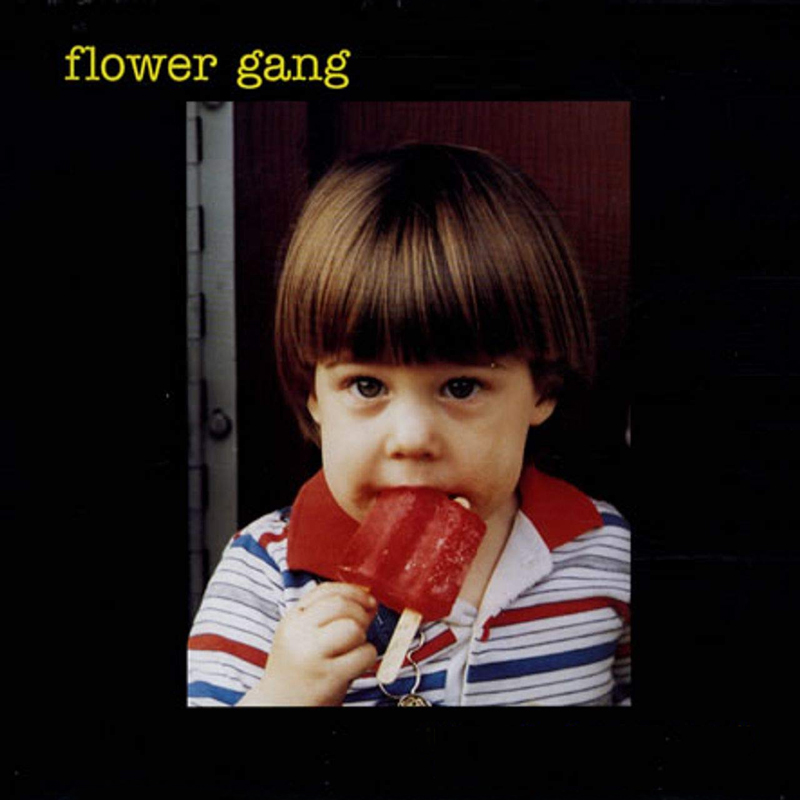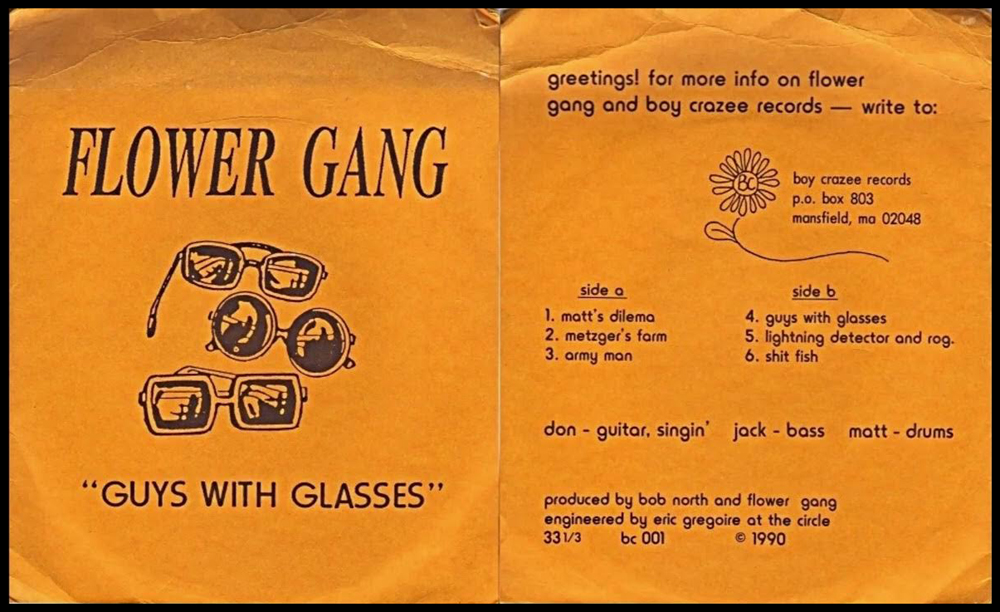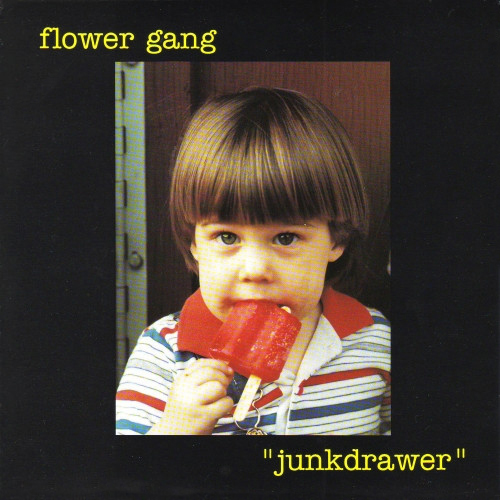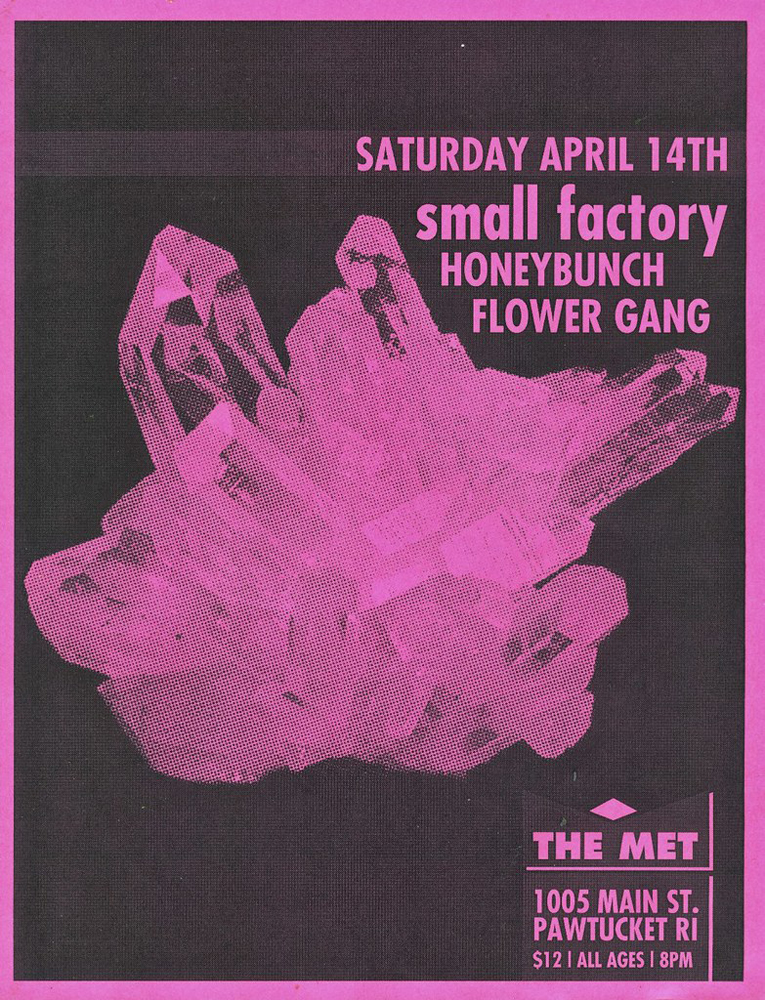Flower Gang

In the early 1990s, Providence, Rhode Island, was home to a thriving underground music scene where creativity outpaced commercial ambition. Among the city’s standouts was Flower Gang, an indie rock trio that captured the spirit of the era with a raw-yet-melodic sound and a fierce DIY ethos.
Formed in 1990, the band grew out of the ashes of another local group, Wavering Shapes, with guitarist-vocalist Don Larson and drummer Matt McClaren recruiting bassist-vocalist Jack Hanlon to complete the lineup. Vocalist Erin Sharicz joined the band shortly before recording their second release, contributing to recordings and live performances, and they developed their sound through intensive rehearsals in the basement of Larson’s family home in Plainville, Massachusetts, practicing three to four times a week.
Band members chose the group’s name, deliberately gentle and evocative, as a tongue-in-cheek response to the era’s heavy-metal-dominated local scene. Initially calling themselves Hairy Diarrhea, they ultimately settled on Flower Gang to set themselves apart from the Anthrax and Metallica cover bands playing nearby VFW halls. Emerging from the same fertile artistic environment that nurtured groups like Small Factory and Honeybunch, they quickly became a fixture at leading Providence venues including AS220 and Club Babyhead and their explosive live shows and community-centered approach make them local favorites out of the gate, though they remained largely unknown outside of New England.
GUYS WITH GLASSES, THE JUNKDRAWER, NOTABLE APPEARANCES
In 1991, Flower Gang released their debut EP, Guys with Glasses, on their own label, Boy Crazee. Pressed in five different colored sleeves – orange, red, blue, green and yellow – the six-track disc defined their early sound: jangly, urgent, and infused with punk sensibilities. Tracks like “Matt’s Dilemma,” “Metzger’s Farm,” “Guys with Glasses” and “Shit Fish” showcased their knack for combining catchy melodies with a rough-around-the-edges delivery. Distribution of the EP got a boost after drummer Matt McClaren cold-called K Records founder Calvin Johnson (whose number he found in the Olympia, Washington phone book) resulting in the record reaching international audiences via Semaphore Distribution in the Netherlands.
Their second and most notable release followed in 1992, Junkdrawer, a double EP issued by respected indie label SpinART Records. The decision to use a double 7″ format was inspired by The Fastbacks’ The Answer Is You EP, a favorite among the band, and tracks such as “Apples,” “McNutt” and “Shiny Grease” demonstrated an expanded musical palette without sacrificing the band’s signature immediacy.
Vocalist Sharicz contributed prominently to the Junkdrawer recordings, adding melodic contrast to the band’s ever-developing sound. In addition to her studio contributions, she performed live with Flower Gang at various local venues during their active years, further enhancing the group’s dynamic stage presence.
Throughout their brief career, Flower Gang shared bills with acclaimed acts such as Yo La Tengo, Uncle Tupelo, Ween and The Magnetic Fields. Their high-energy performances at events including 1992’s Providence Indie Rock Explosion – a three-day festival that showcased the city’s vibrant indie-rock community – put them on SpinART Records’ radar.
DISBANDING, POST-FLOWER GANG ACTIVITY, REUNION, LEGACY
Despite their regional popularity, Flower Gang never recorded a full-length album and disbanded in 1993. Their limited output and short lifespan resulted in the band being an underground phenomenon, known mostly to dedicated local fans and collectors of early ’90s indie vinyl, but band members remained active in music after the split. Hanlon joined the Amazing Royal Crowns, a Providence-based rockabilly-punk outfit that gained a national following, McClaren explored avant-folk territories with Alec K. Redfearn & The Eyesores and Larson contributed to projects including StringBuilder and Death Vessel, the latter of which signed with Sub Pop Records.
In 2012, Flower Gang reunited for a one-night-only performance alongside Small Factory and Honeybunch, reminding longtime fans of their enduring legacy in Providence’s musical history. Though they never achieved mainstream recognition, the group is an important part of New England’s indie-rock story, serving as proof that influence and authenticity often matter more than fame.
(by Karl Sharicz)




